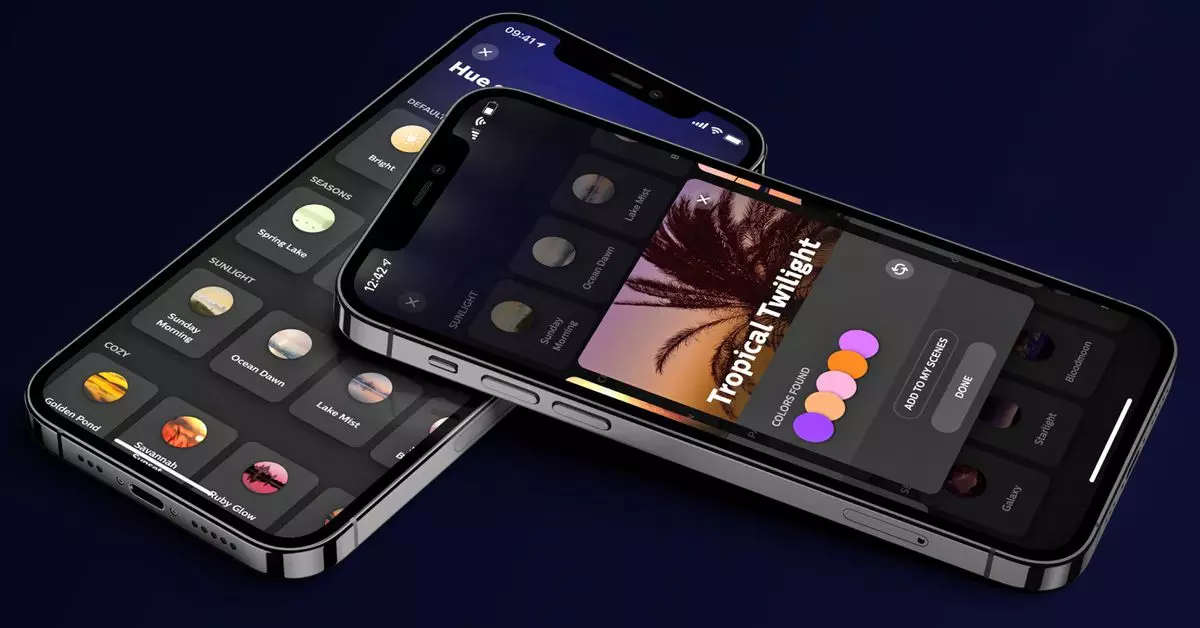In an exciting development for smart home enthusiasts, Philips Hue has announced the launch of its groundbreaking generative AI lighting assistant. This innovative feature allows users to design personalized lighting scenes tailored to specific occasions, moods, or even individual styles. By simply typing a command such as “Create a scene for a romantic dinner” or using voice prompts, users can transform their living spaces with a few easy words. This addition underscores a growing trend in home automation technology—leveraging artificial intelligence to enhance user experience.
The new Philips Hue AI assistant doesn’t merely provide predefined settings; it actively curates lighting options based on user input. This bespoke service means lighting can now reflect the unique energy of any event, from casual gatherings to intimate celebrations. The AI assistant’s dual function of generating new scenes and adjusting existing light parameters—like brightness and color—ensures a versatile and adaptable lighting experience. Competitors in the market have also begun experimenting with such features, but Philips Hue’s offering appears particularly user-friendly, given that it accommodates both text and voice commands.
Philips Hue is stepping into an arena where several competitors have already laid groundwork for AI-enhanced lighting solutions. Govee, with its AI Lighting Bot, and Nanoleaf’s “Magic Scenes” are prominent examples of this emerging sector. However, Philips appears poised to carve out a unique niche for itself by focusing on comprehensive compatibility across its lighting products and through the seamless integration of AI across different interaction modes. As the company rolls out this feature, their positioning as a market leader in smart home lighting could strengthen significantly.
While precise dates for the AI assistant’s rollout remain undisclosed, Philips Hue aims to make the feature available in the first quarter of 2025. Alongside the AI launch, Philips is also enhancing its product ecosystem. The integration of the Philips Hue Sync TV app with LG TVs, along with the introduction of the color-changing Philips Hue Datura ceiling light, indicates a broader vision of synchronized smart home technology. The Datura model, priced at $299.99, features separately controllable lights and customizable color effects and exemplifies how traditional lighting products are evolving in the face of new technology.
As Philips Hue ventures into the realm of AI in lighting design, it sets the stage for a transformative future in home automation. By merging creativity and technology, users can now expect to curate their environments without technical barriers. This approach not only enhances aesthetic appeal but also reflects personal moments and celebrations. With the imminent launch of the AI-powered lighting assistant, Philips Hue invites users to rethink how they illuminate their spaces, heralding a new chapter in personalized home lighting experiences. The way we interact with our living areas is indeed poised for a substantial evolution, driven by the intelligent design and responsive technology of today’s smart devices.

